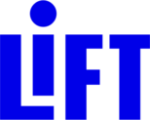I was a college student in the Greater Pittsburgh region working on launching the country’s first youth-led Community of Promise under America’s Promise when I first was introduced to LIFT, which at the time was National Student Partnerships. As I was working to mobilize high school and college students to provide the five promises (caring adults, safe places, healthy start, effective education, service opportunities) for students in under-resourced communities, I was drawn to LIFT’s grassroots approach of connecting passionate, purpose-driven volunteers with low-income adults to partner with them on their way out of poverty. There was a clear synergy between our work.
LIFT’s human-centered design is powerful and has fueled their ability to advance positive outcomes for 100,000 families. The LIFT advocates build critical relationships with families that are rooted in active listening, continual feedback, expanding social capital and building bridges across differences.
Throughout my career, I have remained an advocate for LIFT and had the opportunity to work more closely with them while I was the senior director of community affairs at Capital One. We specifically mobilized employee volunteers to facilitate financial literacy workshops, invested in building LIFT’s communications capacity and supported the expansion of LIFT services in Washington, D.C.
As a social entrepreneur today, I continue to advocate for LIFT for three primary reasons:
- LIFT consistently prioritizes data in line with their strategic priorities and analyzes the data to identify trends, gaps and opportunities to refine how they advance their mission. As a result, they make data-based decisions to break the cycle of poverty.
- The LIFT team, starting with their Founder and CEO Kirsten Lodal, is committed to continual learning. They are not afraid to ask the tough questions or engage in conversations that challenge their assumptions, expand their perspectives and improve their results for low-income families.
- LIFT tackles systemic and structural issues as well as delivers direct services and support that meet immediate needs. This long- and short-term approach aids in LIFT’s ability to meet families where they are while working hard to resolve root causes of intergenerational poverty.
In a recent podcast interview I had with Kirsten, she shared that the “North Star at LIFT has to be empowering the families we work with to break the cycle of poverty…We must interrupt the transfer of poverty from one generation to the next.”
The road to achieving that mission may be long and complex, but we must remain persistent and focused on advancing sustainable solutions.
About the Author
Daniel Horgan is an award-winning nonprofit and corporate social responsibility executive, recognized for his ability to balance big picture thinking with tactical execution. He launched a nonprofit organization at the age of 18 that was recognized by Retired General Colin Powell and President George W. Bush. Daniel leverages his success as both a fundraiser and a grantmaker to help others establish and sustain public/private partnerships with local and national organizations as well as Fortune 100 and 500 companies. Recognized as a 40 Under 40 award winner from Pittsburgh, Daniel started volunteering at the age of 11 and has been committed to strengthening communities ever since. His work has been featured by Forbes, the Huffington Post and dozens of local media outlets across the country. For more information, visit www.dghorgangroup.com or @HorganDaniel on Twitter.
